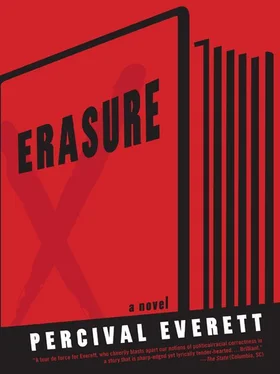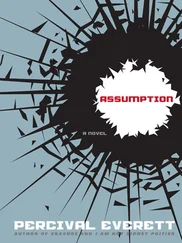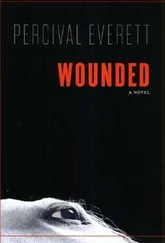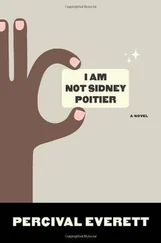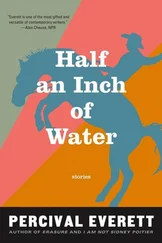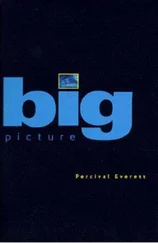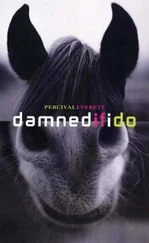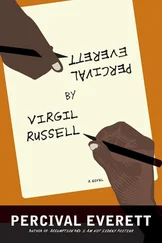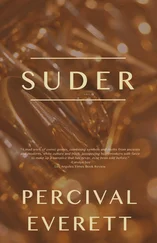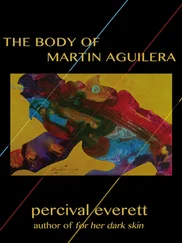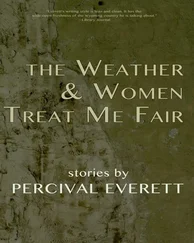Tomad: “Sounds good. I’ve already got a couple I’m willing to go to the mat for. There is some gritty stuff out there.”
Sigmarsen: “Ya, sure. The nature writing is skinny by my standards, but still there are a couple good ones. Toby Lancfugen’s book is remarkable.”
Hoover: “I didn’t get all of that. Yes, of course. I was surprised to see so many books by such big names. Shouldn’t we just go ahead and put them on the first list?”
Ellison: “Okay.”

Christmas came and went. Mother’s body became more fit as her mind failed completely. My editor called my agent with the exciting news that Fuck was going to be released earlier because of the great interest. And even then, when I heard that I would see the book in March, I did not suspect that in January I would open a padded envelope addressed to Thelonius Ellison and find a bound galley of Fuck with the request that it be considered for The Book Award.
Dilemma: I refused to admit that I, Thelonius Ellison, was also Stagg R. Leigh, author of Fuck. But yet here was the book. I could not disqualify myself, because I would betray my secret.
Solution: Ignore it. Who in his right mind would consider giving that novel an award?

Yep.

I had become a hermit. I had a stack of mail from friends, which I had not opened. I had a stack of letters from people at various universities either requesting letters of recommendation for applicants seeking employment or students seeking admission to programs — such was my conjecture, as all of them remained sealed. I felt guilty about those, more so than the personal ones. From a couple of institutions there were three or four letters and I guessed that they were invitations to give readings. I gave few enough readings, as I found the whole custom rather idiotic. “Read the damn book,” I always wanted to shout and just sit down. Once I considered taking a couple of boxes of books and having the audience read silently while I read silently, then point out that they didn’t need me after all. I was not a popular reader, a fact that never hurt my feelings, but now I could imagine that my failure to even respond to the invitations made me that much more desirable.
I sat back on the sofa in the study, closed my eyes and imagined a reading given by Stagg Leigh:
Site:East St. Louis Public Library or the Lansing Public Library or the Worcester Public Library or Borders Bookstore in Philadelphia, Dallas, Jacksonville or Waterstone’s Bookstore in Boston, New York, Chicago.
Stagg’s outfit:Yellow, baggy, draping wool pants. Black silk shirt with loose sleeves and several buttons at the cuff. A gray, sharkskin blazer, double vented, double breasted with a yellow kerchief peeking from the breast pocket. Gray hose. Tasseled loafers, black.
or
Black pants, black shirt, black watch cap, dark glasses, black army boots.
or
A colorful dashiki, white trousers, sandals, red fez.
Stagg is to be introduced by a young white woman, a representative of the Friends of Books Society, Becky Unger. “I’m just so pleased you could come and read for us,” she says privately. “We’d heard that you’re very shy. Oh, I didn’t mean anything by my use of the word ‘shy.’ Private, I meant to say private.”
“I prefer ‘reclusive,’” Stagg says, his voice barely audible.
“Reclusive. Okay, then.” The friend of books gets up and steps to the lectern. She clears her throat and the room comes together “Thank you all for coming,” She clears her throat once more. “It is my pleasure to introduce our guest, Mr. Stagg Leigh. I know that many of you have been as eagerly awaiting Mr. Leigh’s reading as I have, so I’ll make this short. Mr. Leigh is the author of an exceptional first novel,” looks at the audience, catches her breath, looks at her hands, then, “Fuck.” Mixed giggles and muttering erupt in the audience. “This first novel is a runaway bestseller and is presently enjoying its third week at number one. I believe that Mr. Leigh lives in Washington, D.C. This book meant so much to me when I read it. It opened my eyes to ways of black life and helped me understand the pain of those people. So, please join me in welcoming Mr. Stagg R. Leigh.”
Stagg stands and steps to the lectern, acknowledges Ms. Unger with a nod and faces the audience. There are a couple of blue-haired older white women in the front row, nervous-seeming, eyes darting, Stagg says, “Thank you for having me.” His voice is barely audible. The audience leans forward, collectively, hanging on his voice, staring at him. Stagg takes a breath and says,
“Fuck!” The audience is knocked back into their seats. “—is a true story.” Again his voice is barely loud enough to hear, but they do and they moan their approval. “This novel is not true factually, but it is the true story of what it is like to be black in America. It ain’t pretty.”
“Here, here,” from a white, bow-tied man in the back.
“During my time in prison,” a look at the blue-haired ladies, “I learned that words belong to everybody, that I could make my place in this bankrupt society by using my God-given talent with language.”
Applause.
“Fuck! is my contribution to this wonderful country of ours. Where a black ex-con can become rich by simply telling the truth about his unfortunate people.”
Applause. Applause. Applause.
Stagg opens his book. “Fuck!” The audience falls back, then forward to listen. “‘Mama look at me and Tardreece and she call us human slough …’”

Fuck, despite its title, was chosen by Kenya Dunston, or whoever made those kinds of decisions for her, to be a selection of her book club. There was much excitement at the publisher’s offices as it meant that somehow we would split a huge chunk of money. One of the conditions, however, was that Stagg Leigh would appear on the Kenya Dunston Show. This was a bad thing and it filled me with fear and hate. The fear was of being exposed. The hatred, of myself. But the money was more than significant, nearly doubling my advance. Il faut de l’argent.
“What are you going to do?” Yul asked.
“You mean what is Stagg Leigh going to do,” I said.
“I suppose I do mean that.”
“I suppose the author will show up at the studio at the specified time.”
“Good lord.”

I returned home from visiting Mother with the thought that I had only imagined her body remaining in good condition. It was by contrast to her mental failure that I of course was misled. My mother was dying. I felt what I assumed to be normal guilt at the consideration that she might be better off dead. It sounded as awful in my head as it looks on paper. How was I to know what pleasures she was enjoying in her own world. But of course I knew — the fleeting, solitary moments of comprehension must have been punishing and brutal. That night I put on my sneakers and went for a run, resolving to keep my own body fit.

Читать дальше
